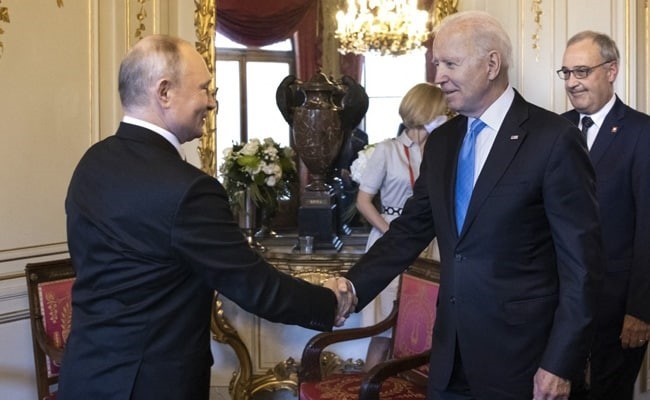
| Translate This News In |
|---|
A White House official told AFP Monday that the US and Russia will meet in January to discuss nuclear weapons control and rising tensions over Ukraine.
On condition of anonymity, a National Security Council spokeswoman stated, “The United States looks forward to working with Russia.”
“When we meet to discuss, Russia may raise its concerns, and we will communicate our reservations about Russia’s behaviour.”
According to the spokeswoman, bilateral talks will take place on January 10th.
Moscow and NATO representatives will meet on January 12th, while Russia and the Organization for Security and Co-operation in Europe (OSCE), which includes the US, will meet on January 13th, according to the spokeswoman.
The meeting on January 10 will be part of the Strategic Security Dialogue project, which was started by US Vice President Joe Biden and his Russian counterpart Vladimir Putin during their June summit in Geneva.
While the format is primarily focused on resurrecting post-Cold War nuclear arms control treaties, a senior White House source said on condition of anonymity that the talks will also include the Ukraine crisis, where Russia has deployed a significant military presence along the border.
The talks between Moscow and the OSCE’s Permanent Council, as well as the NATO-Russia Council conference, are expected to focus on Ukraine.
Ukraine will not be left out.
Putin is accused by Western leaders of threatening to attack Ukraine, a former Soviet republic striving to break free from Moscow’s sphere of influence and join NATO.
Russia already controls a large part of Ukraine’s Crimean peninsula and is accused of fomenting a separatist pro-Moscow uprising in the country’s industrial east.
The deployment of tens of thousands of new Russian troops to the border has generated worries in Kiev and its Western allies of a larger conflict, which may include more annexation of Ukrainian territory.
Putin denies that Russia is plotting an assault on its neighbour, claiming that the army movements are necessary to safeguard Russia from an invading Western force.
He made a number of broad security demands to Western countries earlier this month, including preventing Ukraine from joining NATO.
In reaction, the US and its European allies have vowed to inflict heavy economic sanctions on Russia if it invades Ukraine, as well as offering to hold talks.
Ukraine’s interests would not be overlooked in any arrangement with Russia, according to a National Security Council spokesperson.
“Nothing about our allies and partners, including Ukraine, will be discussed without our allies and partners, including Ukraine,” the official stressed.
“President Biden’s Ukraine strategy has been simple and consistent: unify the alliance around two tracks: deterrence and dialogue. We are unanimous in our judgement of the consequences for Russia if it acts against Ukraine as an alliance “The spokeswoman went on to say.
“However, we are united in our willingness to engage Russia in principled diplomacy.”
On January 10, there was no quick announcement on who would represent the two sides.

















